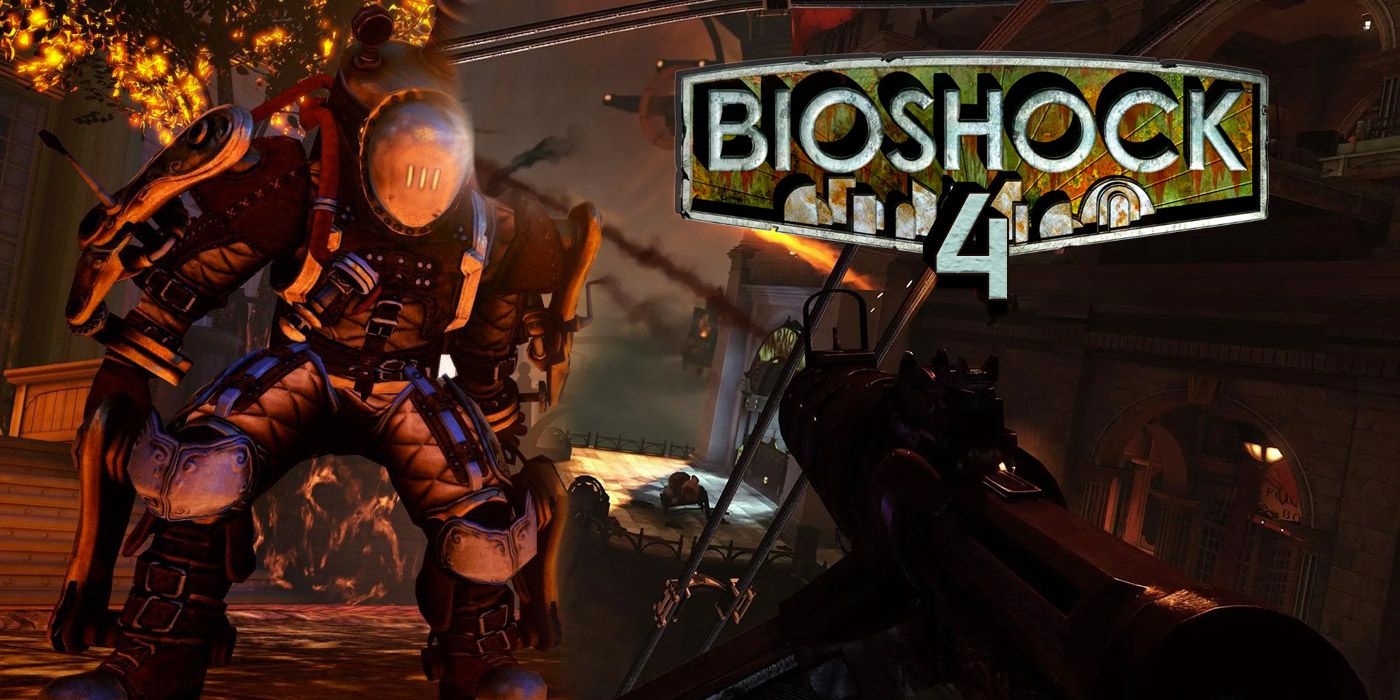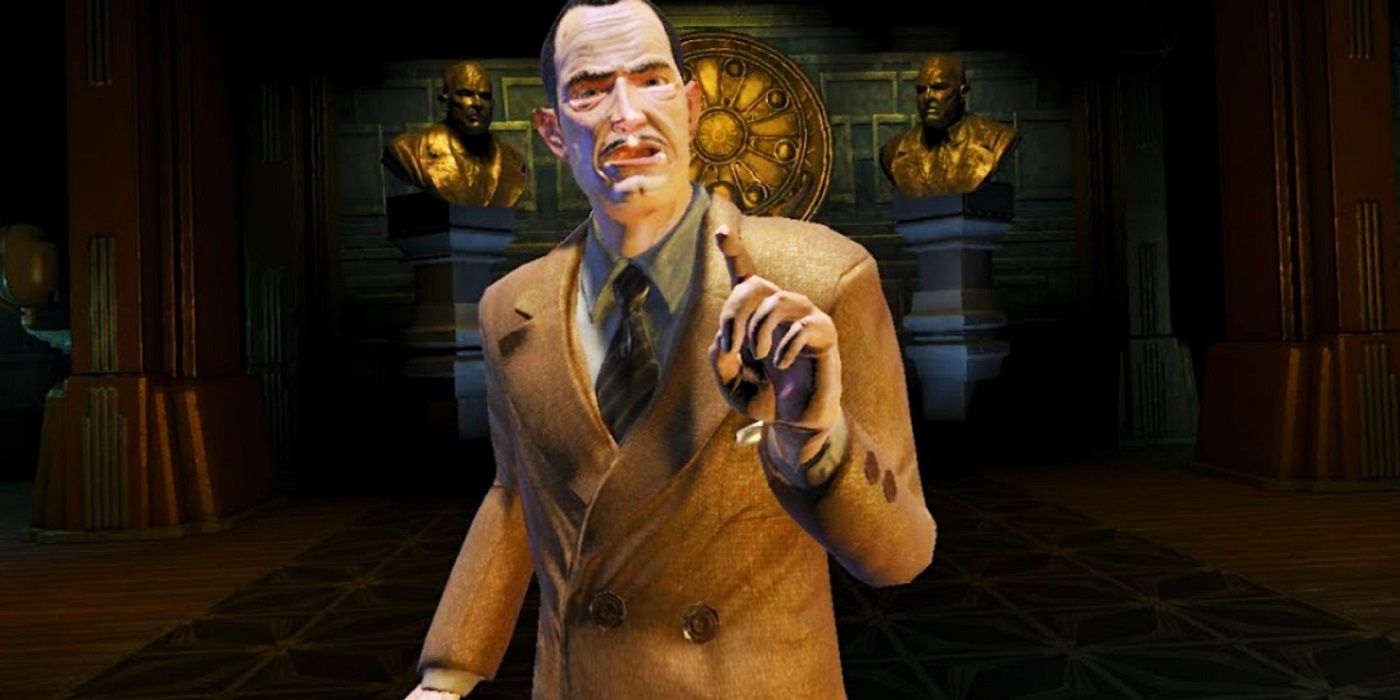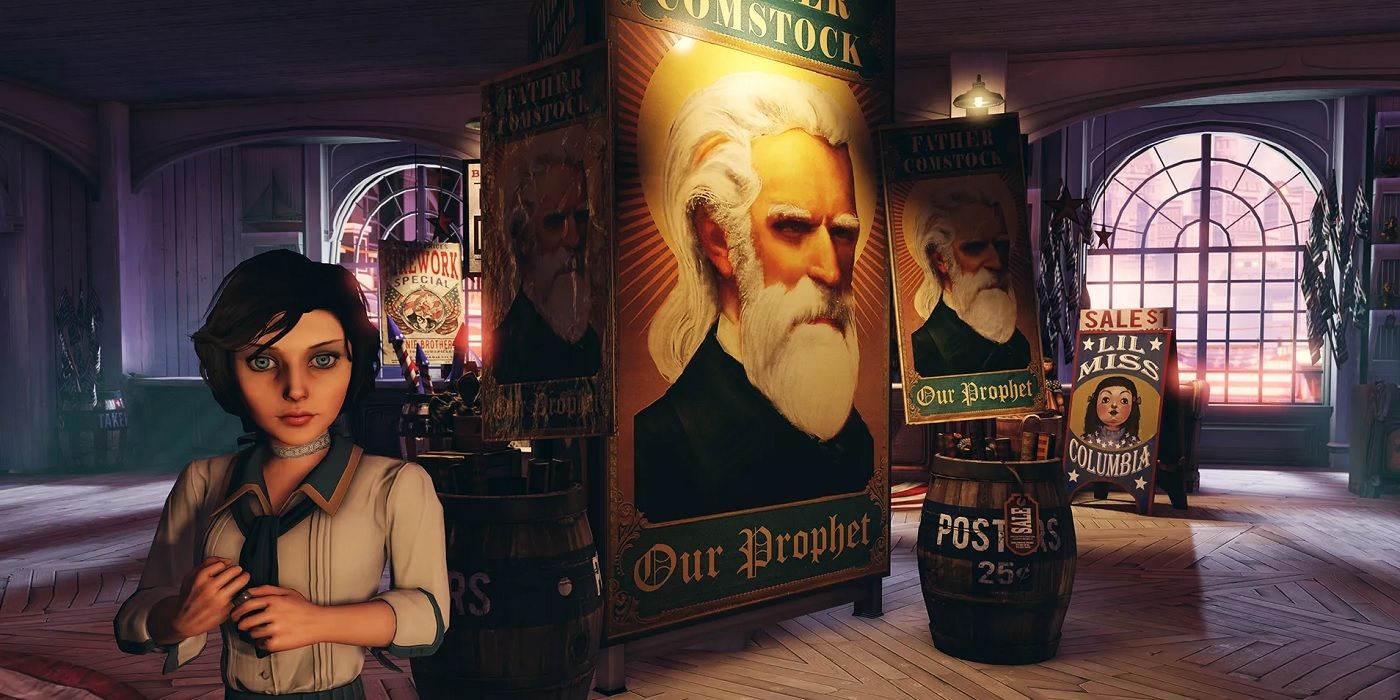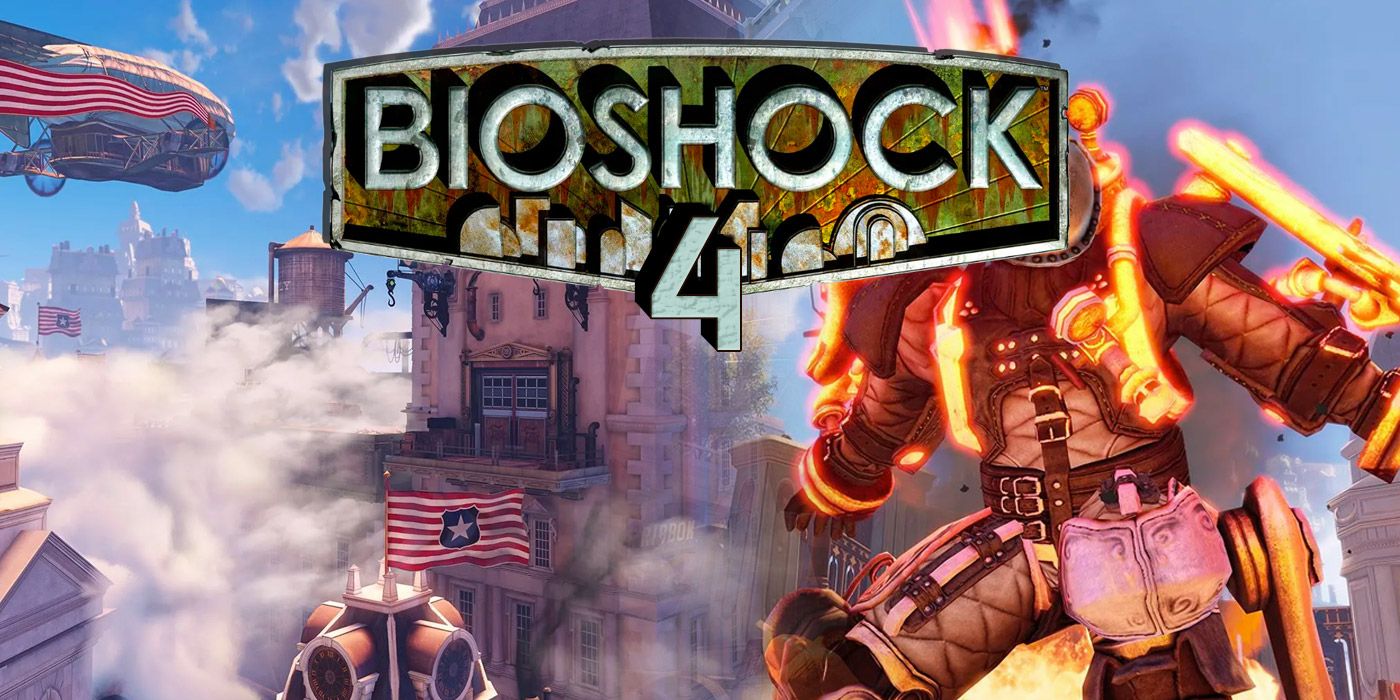BioShock 4: The Biggest Franchise Twists Hand the New Game a Huge Challenge

BioShock 4 is in development at Cloud Chamber Studio, a new studio set up by 2K to tackle the next game in the acclaimed dystopian series. So far, the game’s setting has yet to be revealed, and it’s unknown if players will return to Rapture, Columbia, or somewhere new.
No matter what, BioShock 4 has a significant legacy to live up to. The original BioShock and BioShock Infinite are known for their writing, weaving strong narratives throughout their fictional worlds with a blend of linear plotlines and environmental storytelling. Both games, however, are also known for their twists. Though the first game’s twist helped put BioShock on the map, these twists present BioShock 4 with a huge challenge.

BioShock 1’s twist is a remarkable story turn. Upon meeting Andrew Ryan, the protagonist of BioShock, Jack, is hit with a rapid succession of revelations. It’s revealed that Jack is in fact Ryan’s son and has been brain-washed to respond to the phrase “would you kindly,” which his supposed ally Atlas has been using throughout the game so far. Ryan then uses the phrase to command his son to beat him to death, and Atlas reveals his true identity: Andrew Ryan’s revolutionary rival, Frank Fontaine.
It’s a fantastically executed twist, taking advantage of frequently used video game storytelling devices that players are expected to overlook. Since so many video games have helped characters who guide the player through the world, few players look too deeply into Atlas or his motivations. Similarly, players don’t question the tasks they are asked to complete, as they understand them as necessary to their progression through Rapture.
Instead of expecting players to suspend their disbelief with these video game storytelling devices, the original BioShock reveals that the structure of the game itself is a representation of the mind control BioShock's Jack is under, and that the game’s relatively linear story is in fact another way of representing Jack’s lack of agency. The twist hits like a ton of bricks by relying on workings of the game itself as a form of misdirection. It was a hard twist for any game to top, both in terms of how surprising it was and how it played into the game’s meta. Nonetheless, BioShock Infinite’s twist proved to be just as shocking for many fans of the franchise.

BioShock Infinite was subtly marketed as a spiritual successor rather than a narrative sequel, with no apparent story ties to the first two BioShock games. There were parallels, like the main character arriving at their destination via a lighthouse at the beginning of the game. However, these thematic similarities only helped further obscure the in-universe connections by making it seem like the developer was simply playing with the BioShock formula.
At a certain point in BioShock Infinite, the player is hit with a series of massive reveals, just like in the first game. Elizabeth is revealed to be protagonist Booker DeWitt’s daughter, while the game’s villain Zachary Hale Comstock is revealed to be a version of Booker himself from a parallel universe. This reveal comes with an even bigger revelation for fans who played the first two games.
Not only is Booker another version of Comstock, but he’s also another version of Jack from the first game just as Columbia itself is another version of Rapture. Elizabeth reveals that there’s “always a lighthouse, there’s always a man, there’s always a city,” and players even find themselves momentarily in the city of Rapture itself, revealing the BioShock games and characters to be a part of the same interconnected multiverse. This twist manages to have the same shock factor as the original BioShock’s twist while also expanding on its meta commentary. However, both of these twists have the potential to cause big problems for BioShock 4 as Cloud Chamber attempts to live up to the previous games in the franchise.

For a start, BioShock 4’s developer will likely go in knowing that fans expect a big twist in the new game. This could easily lead the developer to veer away from any big reveals, but this itself could risk disappointing fans. If BioShock 4 ends up being far more self contained and doesn’t add to some of the multiverse elements first touched on in Infinite, many may ask if it's even a BioShock game.
Part of the problem following Infinite’s big reveal is that fans may also expect BioShock 4 to somehow follow the lighthouse-man-city formula Elizabeth talks about. Indeed, Elizabeth’s commentary on the BioShock multiverse makes unclear whether or not it’s even possible for a BioShock story to be told without these elements. Even if the next game avoids clear parallels, the storytellers will have to manage the fact that BioShock fans will be keeping a close eye out for the next game’s lighthouse, man, and city.
BioShock Infinite’s twist also makes it less likely that Cloud Chamber will be able to get away with acting like BioShock 4 is not connected to the story of the other games, even if that is in fact the case. It’s possible that BioShock 4 will have a twist that limits itself to the game's new story alone, similar to the familial reveals in BioShock 1 and Infinite. However, many fans will also want the next game to expand upon the BioShock multiverse revealed so far, making managing expectations for the new game’s story particularly challenging.
That doesn’t mean that Cloud Chamber isn’t up to the task, however. While series creator Ken Levine is not attached to BioShock 4, many other original developers will be working on the new game. It may be unclear how BioShock 4 will deal with the huge twists of the previous games, but the same could be said in 2013 before the launch of BioShock Infinite. One thing’s for certain, however–for a new studio, Cloud Chamber is taking on an IP with some immense expectations attached.
BioShock 4 is reportedly in development by Cloud Chamber Studio

Post a Comment